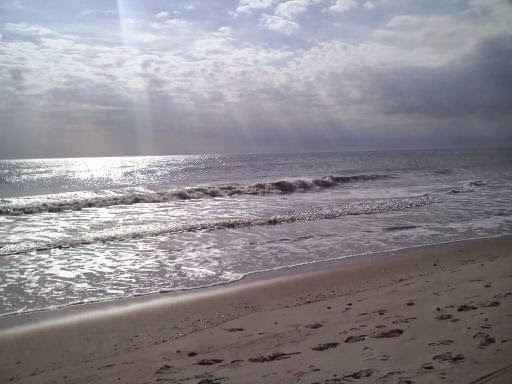 For the Democrats it's an Obama/Biden ticket; for the Rethugs it's a brilliant stroke of inspiration: McInsane/Impaling. I can't say much more. Oh, all right, if you beg me.
Maybe we've just lately become a country of people who live in the big houses and hold the power, who play up (down/up?) to those in the lower economic strata at certain times (mainly at election time in what we think of as "representative democracy") who work hard and play by the rules, and end up (for most of the last 30 years, according to the economic data) having to keep working very hard until they die just to keep their increasingly much smaller houses. Thus we have the new American success story: the middle class, rapidly diminishing into the vanishing point.
Mrs. Paled, the self-proclaimed successor to Hillary and Gerry Ferraro, has an interesting history of thuggery and sweetness mixed under the Converashame veil that is always interesting to view from a safe distance. She's a proponent of the Feminists for Life, which Ruth Rosen at Alternet reports
For the Democrats it's an Obama/Biden ticket; for the Rethugs it's a brilliant stroke of inspiration: McInsane/Impaling. I can't say much more. Oh, all right, if you beg me.
Maybe we've just lately become a country of people who live in the big houses and hold the power, who play up (down/up?) to those in the lower economic strata at certain times (mainly at election time in what we think of as "representative democracy") who work hard and play by the rules, and end up (for most of the last 30 years, according to the economic data) having to keep working very hard until they die just to keep their increasingly much smaller houses. Thus we have the new American success story: the middle class, rapidly diminishing into the vanishing point.
Mrs. Paled, the self-proclaimed successor to Hillary and Gerry Ferraro, has an interesting history of thuggery and sweetness mixed under the Converashame veil that is always interesting to view from a safe distance. She's a proponent of the Feminists for Life, which Ruth Rosen at Alternet reports
is neither about feminism nor about choice. It is a cunning attempt to convince young women that choice means giving up the right to "choose."
Sarah Palin is the inexperienced woman Sen. John McCain has chosen as his running mate, hoping that she will attract the vital female vote.. It's the worst kind of affirmative action, choosing a person he barely knows, who is completely unprepared to assume any national office. It's like nominating Clarence Thomas for the Supreme Court. It's all about ideology and not about competence.
To put it bluntly, Sarah Palin is no Hillary Clinton. Nor does she have the vision and brilliance of Barack Obama. This is an incredible insult to most American women. Just how stupid does he think we are?
She's such a poorly qualified choice to be one breath away from the Presidency (especially when McBane has had so many occurrences of cancer and perhaps worse ailments that are publicly unknown) that she makes the past token candidates look overqualified. I knew after reading for years about the Murkowski and Stevens' seemingly neverending "Northern Exposure" corruption that was flowing all over our humble 49th state, possessing such astounding natural beauty spread over its energy-riven tundra, that the social norms there must be wildly entertaining at best. After reading about Mrs. Pale Rider's hijinks in her two public positions, I realized that my capacity for fantasy was going to be sorely tested.
Now that the Democratic Convention has climaxed and we are adding up the damages, I'd like to vote for the Jimmy/Rosalynn Carter abomination as number 1, although I'm sure I'll get a lot of flak from the contingents who know much better than I where the real action lay.
Bob Herbert summed it up thusly:
It was as though the Champagne had been on ice for half a century or more. On Thursday night, with Barack Obama formally accepting the Democratic presidential nomination at Mile High Stadium in Denver, African-Americans from coast to coast and beyond felt they might now dare to pop the corks. As I talked to black residents in and around Detroit, a troubled city that has never fully recovered from the riots of 1967, the personal stories — some of them pent-up for decades — came in an emotional rush, often accompanied by tears. The message I heard again and again was that the triumph of Senator Obama in securing the nomination helped to redeem some of the disappointment and grief of many years of racial humiliation and oppression . . . . Jennifer West, a 47-year-old insurance executive told me: “We’re all sitting on feelings we don’t usually talk about. We’re starved for a collective sense of affirmation. Barack is the son, the brother, the uncle, the cousin who made good. Who overcame. God bless him for what he means to us.” Mr. Cochran said it would take an hour, “maybe more,” to describe how much Senator Obama’s candidacy meant to him. “I am elated,” he said. “I’m surprised, I—” His voice broke once again. His tears, and those of so many others, were a measure of the enormity of what had come to pass.Robert Parry at Consortium News thinks that:
Hillary Clinton gave an eloquent speech calling for Democratic Party unity, but some of her supporters are making clear that they so hate Barack Obama that they would prefer that John McCain extend neoconservative rule in the United States rather than let Obama into the White House. Some of these die-hard Clinton backers claim they have suffered various slights, such as receiving inferior hotel rooms in Denver or finding the Obama campaign insufficient in its ardor courting their support. Others blame Obama for examples of sexism and unfairness that arose in the long primary campaign. Some pro-Hillary activists even have behaved as if their perceived grievances give them the right to engage in crude attacks on Obama, the first African-American to have a serious shot at the presidency. For instance, Clinton backer Carolyn Kay has turned what once was a media-criticism Web site called MakeThemAccountable.com into a daily compendium of Obama hate, which continued on Wednesday after Sen. Clinton's speech. Kay’s product reached what had to be its low point on July 31 when she forwarded to her mailing list a cartoon of Obama sitting on a toilet with his pants down, masturbating, as he gazed at himself in the mirror while thinking, “I have become the symbol of America returning to our best traditions.” The masturbation cartoon (which was entitled “Where will you be when the Messiah comes?”) originally appeared at a Web site called Cannonfire. Beyond the tastelessness of the cartoon, the supposed Obama quote – about him being “the symbol of America” – came from a discredited Washington Post article by Dana Milbank, who later was chastised by the newspaper’s ombudsman for not checking out the quote’s accuracy or its context. [See Consortiumnews.com’s “WaPost Admits Bungling Obama Quote.”] Yet, while some angry Clinton supporters apparently see nothing wrong with producing and distributing demeaning material about Obama, they have long bristled at any perceived disrespect for Hillary Clinton or her campaign. For months any criticism of Clinton's campaign tactics – such as her decision to “throw the kitchen sink” of negative attacks at Obama – was greeted with accusations of “sexism” or “misogyny.” And, even as some Clinton supporters hurled charges of “sexism” freely, they complained when some Obama supporters attacked them as “racist.” While Hillary Clinton’s powerful speech on Tuesday night may have persuaded some of her backers to understand what’s at stake in the presidential election, others told reporters afterwards that they were unmoved.Read the rest here and as Spencer Tracy said about Katherine Hepburn "it's cherce." Jason Leopold leads us on a journey of Pale discovery:
The political career of Sarah Palin, Sen. John McCain’s vice presidential pick, has been marked by conflicts, score-settling and her own claim that she faces “enemies – powerful enemies.” But the 44-year-old first-term Alaska governor is a favorite of right-wing Christian groups and was hailed Friday by one organization as “a true Christian” who is “pro-life and pro-marriage.” She also has favored the teaching of creationism in Alaska’s schools. After the surprise announcement Friday, the McCain campaign tried to frame Palin as a reformer who has taken on corruption in Alaska. However, an examination of her career as a small-town mayor and inexperienced governor reveals an official prone to petty squabbles and personal retaliation. In 1996, after winning the election to be mayor of Wasilla, then a town with a population of 5,000, Palin sought to oust six department heads because they had signed a letter supporting the previous mayor, their old boss. Palin ultimately fired two of them, the police chief and the museum director, and pushed two others into quitting. In 1997, some residents considered her actions so high-handed that they tried to initiate a recall election . . . . Now, as Alaska’s governor, Palin is under investigation for allegedly ousting Alaska public safety commissioner Walt Monegan because he refused to fire a state trooper entangled in a divorce and custody battle with Palin’s sister. That probe also is examining whether Palin’s extended family, including her husband, and members of her staff tried to pressure Monegan to fire state trooper Mike Wooten because of the divorce. Monegan told the Anchorage Daily News that the governor’s husband, Todd Palin, showed him the work of a private investigator, who had been hired by the family to dig into Wooten’s life and who was accusing the trooper of various misdeeds, such as drunk driving and child abuse. In early August 2008, the state legislature agreed to investigate the circumstances surrounding Gov. Palin’s firing of Monegan. She initially welcomed the probe and denied that she had put pressure on Monegan. Later, however, Palin acknowledged that there had been more than two dozen inquiries from her staff to the public safety department regarding trooper Wooten, though Palin still insisted she had no role in them. Gov. Palin also released an audio recording of her director of state boards and commissions, Frank Bailey, pressing police Lt. Rodney Dial in February 2008 about why no action had been taken against Wooten.So she fits right in. And the disgraceful treatment of President Jimmy Carter and his wife, Rosalynn, is almost too disgusting an item for a once-proud Democrat to address coherently, so I'll let Brett Lieberman and Nathan Guttman do it for me as they report in their essay in Information Clearinghouse:
Former president Jimmy Carter’s controversial views on Israel cost him a place on the podium at the Democratic Party convention in late August, senior Democratic operatives acknowledged . . . . Breaking with the tradition of giving speech time to living former presidents, convention organizers honored Carter with only a short video clip highlighting his work with Hurricane Katrina victims and a brief walk (by Rosalynn and him) across the Pepsi Center stage. The sidelining of Carter was driven by recognition in the Obama camp and among Democratic leaders that giving the former president a prominent convention spot might alienate Jewish voters. “What more could we do to diss Jimmy Carter?” said a Democratic official who was involved in deliberations on how to handle the former president’s presence at the convention. The treatment Carter received, the official added, “reflects the bare minimum that could be done for a former president.” Although Carter says limiting his presence at the convention was his idea, denying him a speaking opportunity ends a two-year struggle for the party over how to deal with the controversial former president. Since Carter published a book in November 2006 accusing Israel of practicing apartheid against the Palestinians, Democrats have been trying to distance themselves from the former president and to convince Jewish activists that he does not represent the party line. Carter’s status at the convention was an issue for the Democratic leadership going back to the early preparation stages, a party official said. . . . Carter, according to party insiders, was initially scheduled to speak at the event, though organizers insisted he focus only on issues relating to domestic policy and not touch on foreign affairs. During his speech at the 2004 Democratic convention in Boston, Carter mentioned Israel, but he only touched in general terms on the need to bring peace to the region. As the Denver convention drew near, organizers grew uneasy with the idea of having Carter speak even on domestic issues. In the end, the decision was made to have what the official convention schedule described as a “President Jimmy Carter segment,” which included a video presentation of the former president’s work in New Orleans. The video was followed by a brief appearance by Carter and former first lady Rosalynn Carter, who walked across the stage to the sound of Ray Charles’s “Georgia on My Mind.” The assembled delegates showered Carter with applause and a standing ovation. Jewish Democrats approved of Carter’s limited presence at the convention, as they have argued that embracing the former president could tarnish the party in November. “You can’t give him a podium, because people will draw the conclusion” that the Democratic Party supports Carter’s views on the Middle East, said Rep. Jerrold Nadler of New York. “I wouldn’t let him within 100 miles of the convention center, because it would be used by an unscrupulous Republican Party that doesn’t care about the truth in character assassination against our candidate.” While Carter did come to Denver, he downplayed suggestions that he had been silenced. In an August 26 interview with the Atlanta Journal-Constitution, Carter said that the idea not to speak at the convention was his own. “Michelle spoke last night, Barack is going to speak Thursday night and the other two nights are for the Clintons,” Carter said. “So, I didn’t want to intrude…. I didn’t need to get on the stage and make a speech.” . . . . Among some of Jewish delegates to the convention, however, denying Carter a speech but offering him a video tribute was not nearly sanction enough. “He hasn’t shown respect to Israel and many of the Jewish constituencies here based on the things he has done,” said Nan Rich, a Florida state senator who left the hall in protest before Carter’s appearance onstage. Although staunch critics of Carter may not have been won over by the Obama campaign’s sidelining of the former president, at least one one Jewish Democratic official says the episode reflects the degree to which the presidential hopeful is concerned about shoring up Jewish support before November. “I think it’s hard to ask a political party to take a former president and say, ‘We’re not going to hear you at all,’” said Ira Forman, executive director of the National Jewish Democratic Council. “The party is very sensitive to the American Jewish community, and it’s very sensitive to ever conveying that this is anything but a pro-Israel party.” And though Rich chose to protest Carter’s inclusion, she was among the critics who appreciated the decision to minimize his role. “It shows the party gets it and Barack Obama’s campaign gets it,” she said.And the other guys are much worse. You'd think that some of these people will be voting for the neoCon party, but they say not. Dick Meyer, author of Why We Hate Us: American Discontent in the New Millennium and the editorial director of Digital Media at National Public Radio, addresses one facet of American life that I know has left lots of us "cranky and isolated."
America is disappointed in itself. What is stunning is how long this has been true and how long we have had our heads in the sand. After Vietnam and Watergate, the respect and confidence Americans felt in the major institutions of public life - and their leaders - plummeted: the White House, Congress, the Supreme Court, the press, corporations, medicine, and even the clergy. In the 40 years since, trust and confidence have simply not recovered. Our disenchantment is not limited to government, and it is not the kind of griping people always do. Parents are wary of the entertainment Hollywood produces in a way that was unheard of a generation or two ago. We have not always been convinced, as we are now, that there is pervasive cheating in business. Fifty years ago, most Americans did not believe traditional news organizations were tabloid, sensational, and not credible. Culture, in our own estimation, has become an echo chamber for the worst in us. It doesn't reflect the higher values we have as families and individuals; it preys on the lower ones. And in turn, our own behavior and manners - as parents, neighbors, colleagues, citizens and consumers - too often disappoint us. Two trends stand out and help us understand what is unique about our times. First, we are as mobile as any society has ever been. Usually, humans leave family and neighborhood only when forced out by Vikings, famine, or plague. Though wandering is part of the American story, the last few generations have uprooted themselves perpetually, by choice. This is not just geographic: We have also become unmoored from the traditions and inherited values of our communities. Now we are discovering that living away from close family, lifelong friendships, and intergenerational relationships can make us cranky and isolated. Second, the revolution in communications technology at the turn of this century has amplified everything. . . . We are finding it difficult to impose standards on ourselves, leaving us with a well deserved lack of collective self-esteem. "National pride, the philosopher Richard Rorty wrote, "is to countries what self-respect is to individuals; a necessary condition of self-improvement." Presidential elections are about national self-improvement. This election is a good opportunity to consider how we as a society and as individuals can earn our respect back.I'm just saying (again and again). Suzan








































